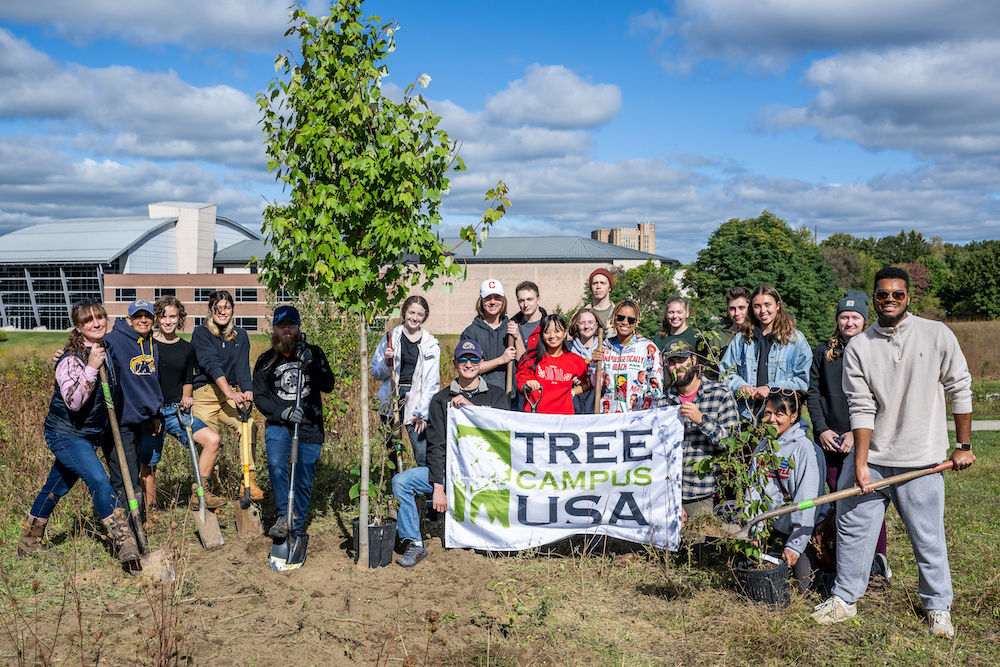The 91▓ų┐Ō community planted more than 100 trees in the Climate Change Grove to help offset the universityŌĆÖs carbon footprint and provide a way to research the effects of climate change in our immediate environments.
Located behind the Warren Student Recreation and Wellness Center, the grove was created through a partnership between University Facilities Management and the Department of Biological Sciences in the College of Arts and Sciences. The trees have been planted by 91▓ų┐Ō staff, students, alumni and other volunteers.

The grove is a reforestation and research project that will be monitored for the next 100 years.
ŌĆ£We've been working on this since 2018,ŌĆØ Melissa Davis, the horticulture facilities director, said. ŌĆ£We won't have the final results, of course, climate change is a slow process, and so is this research.ŌĆØ
Davis explained the importance of reforesting this area on the Kent Campus. With growing zones shifting, this research is essential.
ŌĆ£We are monitoring how plants will behave as climate changes,ŌĆØ Davis said. ŌĆ£As climates continue to warm, we're seeing that the natural forest communities and USDA growing zones are shifting to the north.ŌĆØ
Several students volunteered at the Trees for the Future planting on Friday. Many students said they were happy to help reforest this area on campus.

Angela Tipton, a senior fashion design major, attended the event to declare her love for the planet and involve her friends in helping the planet.
ŌĆ£I love Earth, and I joined the sustainability club this year,ŌĆØ Tipton said. ŌĆ£They sent this event out in an email and I thought it was cool so I brought some friends.ŌĆØ
Dominique Ivory, senior psychology major, volunteered to plant trees for some relaxation.
ŌĆ£I just figured IŌĆÖd come out here and volunteer because school is pretty stressful and this is a good way to ŌĆśwhoosahŌĆÖ everything out,ŌĆØ Ivory said, referencing the movie "Bad Boys II."
Talia Rahim, aeronautical systems engineering technology major, was encouraged by her friends to come to the event. SheŌĆÖd had prior experience with environmental projects.
ŌĆ£I say yes to every opportunity,ŌĆØ Rahim said. ŌĆ£I even removed invasive species from Kaiser Valley National Park.ŌĆØ
Several tree species are being monitored in the grove as the climate changes. Davis said the research will take time, but itŌĆÖs for the future.

ŌĆ£There are some species of trees that are expected to decrease as climates change. By the year 2100 weŌĆÖll have results,ŌĆØ Davis said. ŌĆ£Others will be able to take this and continue this research moving forward. It's something that we felt we could start for future generations.ŌĆØ
For more information about the 91▓ų┐ŌŌĆÖs Climate Change Grove, visit www.kent.edu/einside/news/kent-state's-new-climate-change-grove-supports-research-and-sustainability-efforts.

